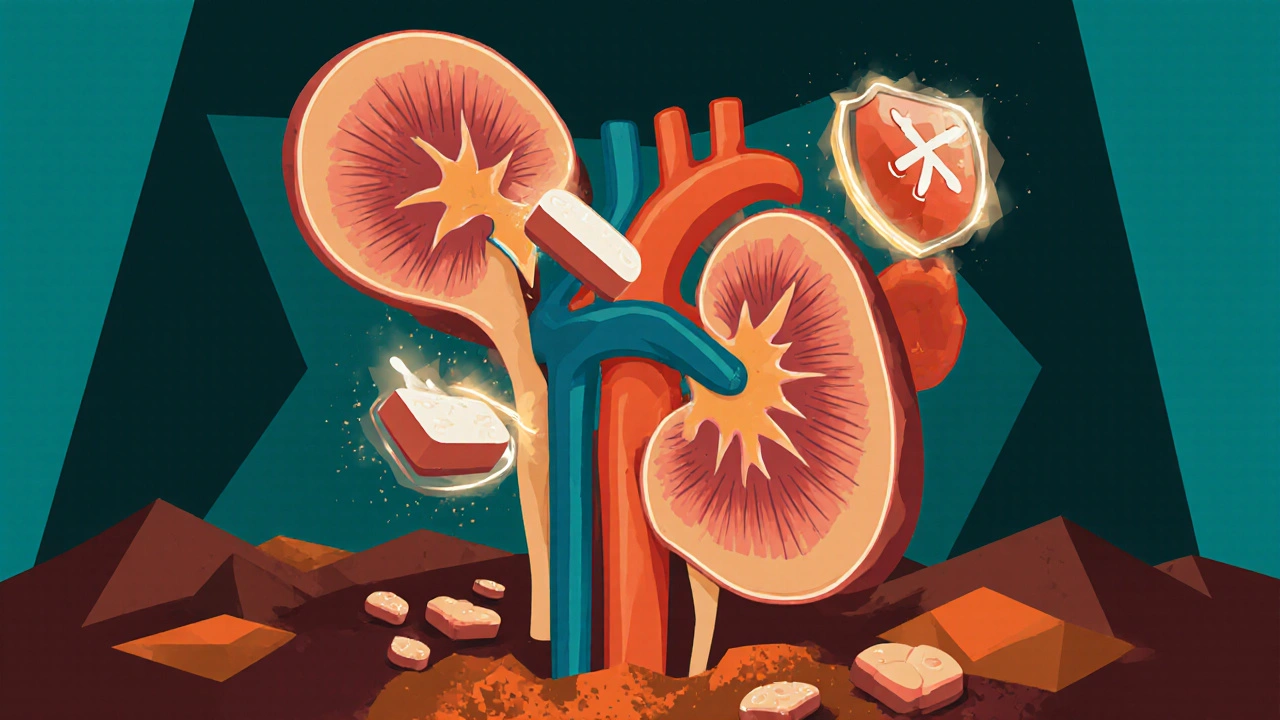Atorvastatin: What It Is, How It Works, and What You Need to Know
When your doctor says you need to lower your cholesterol, they might prescribe atorvastatin, a cholesterol-lowering medication in the statin class that reduces LDL (bad) cholesterol and lowers heart attack risk. Also known by the brand name Lipitor, it's one of the most prescribed drugs in the world because it works—and it works for a lot of people. Atorvastatin doesn’t just take cholesterol out of your blood; it tells your liver to make less of it and helps your body clear out what’s already there. This isn’t a quick fix—it’s a long-term tool for people with high cholesterol, a family history of heart disease, or those who’ve already had a heart issue.
Atorvastatin is part of a bigger group called statins, a class of drugs that block an enzyme your liver uses to produce cholesterol. Other statins include simvastatin, rosuvastatin, and pravastatin, but atorvastatin stands out because it’s strong, lasts a full day, and works well even at lower doses. It’s often chosen when other statins don’t bring cholesterol down enough, or when someone needs a more powerful option without taking multiple pills. The goal isn’t just to hit a number on a lab report—it’s to reduce your risk of a heart attack or stroke. Studies show that for every 40 mg of atorvastatin taken daily, LDL cholesterol drops by about 45% on average, and major heart events go down by up to 30% over five years.
But it’s not magic. Atorvastatin works best when paired with lifestyle changes—eating less saturated fat, moving more, and quitting smoking. It’s not a substitute for healthy habits; it’s a backup plan when those habits alone aren’t enough. And while most people tolerate it well, side effects like muscle pain, fatigue, or digestive issues can happen. If you’re on atorvastatin and feel unusual soreness, especially in your legs or back, talk to your doctor. It could be harmless, or it could be a sign you need a different dose or drug.
People often wonder how atorvastatin compares to other cholesterol treatments. It’s not the only option. There are newer drugs like PCSK9 inhibitors, but they’re injectable and expensive. Or you might hear about red yeast rice or fish oil—those aren’t replacements. They might help a little, but they don’t come close to the proven power of atorvastatin. If you’re on it, you’re likely on it because your doctor weighed the risks and benefits—and found this drug the best fit.
What you’ll find below are real-world guides and comparisons from people who’ve taken atorvastatin, or considered alternatives like ezetimibe or rosuvastatin. You’ll see how it stacks up against other statins, what side effects users actually report, how diet affects its performance, and when it’s better to switch. These aren’t ads or drug company brochures—they’re honest, practical takes from users and clinicians who’ve been there. Whether you’re just starting atorvastatin or thinking about stopping it, this collection gives you the clear, no-fluff info you need to make smart choices.
Atorvastatin and Kidney Health: What You Need to Know
Atorvastatin is safe for most people with kidney issues and can reduce heart disease risk. Learn how it affects kidney function, who should be cautious, and what tests to expect.
Read more
